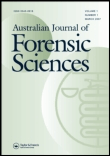
Australian Journal of Forensic Sciences
Scope & Guideline
Connecting Researchers to the Heart of Forensic Innovation
Introduction
Aims and Scopes
- Forensic Methodologies and Techniques:
The journal emphasizes research on new and improved forensic methodologies, including DNA analysis, fingerprint detection, and imaging techniques, which are critical for accurate forensic investigations. - Application of Forensic Science in Legal Contexts:
A consistent focus is placed on how forensic science impacts the legal system, with studies exploring the reliability of forensic evidence in court proceedings and its role in criminal investigations. - Interdisciplinary Research:
The journal encourages interdisciplinary approaches, integrating knowledge from fields such as biology, chemistry, and digital forensics to enhance the scientific basis of forensic practices. - Population-Specific Studies:
Research addressing forensic characteristics within specific populations is highlighted, contributing to the development of localized forensic standards and practices. - Ethical and Social Implications of Forensic Science:
The journal also addresses the ethical considerations and societal impacts of forensic practices, ensuring a holistic view of the discipline.
Trending and Emerging
- Digital Forensics and Cybersecurity:
A notable trend is the increasing focus on digital forensics, including the analysis of digital devices and data, which is becoming crucial as crime increasingly involves technology. - Machine Learning and AI Applications:
The integration of machine learning and artificial intelligence in forensic analysis is gaining prominence, showcasing innovative approaches to data interpretation and evidence analysis. - Environmental Forensics:
Research addressing the intersection of forensic science and environmental issues, such as the effects of pollutants on forensic evidence and the use of ecological indicators in investigations, is emerging as a significant area of interest. - Forensic Genetics and Ancestry:
An increasing number of studies focus on forensic genetics, particularly in relation to ancestry determination and the application of genetic data in forensic contexts, highlighting the relevance of genetic diversity in forensic identification. - Sustainability in Forensic Practices:
There is a growing interest in sustainable practices within forensic science, including the development of eco-friendly materials and methods, reflecting a broader societal focus on environmental responsibility.
Declining or Waning
- Traditional Forensic Anthropology:
Research specifically focused on traditional forensic anthropology methods has waned, possibly due to the rise of more advanced imaging and analytical techniques which provide more precise results. - Basic DNA Profiling Techniques:
There is a decline in studies centered on basic DNA profiling methods, as the field has moved towards more complex and innovative approaches, such as next-generation sequencing and bioinformatics. - Generalized Forensic Science Reviews:
The frequency of generic review articles summarizing forensic science practices has decreased, indicating a shift towards more specialized, detailed studies that address specific forensic challenges. - Localized Case Studies:
The journal has seen a reduction in case studies that do not incorporate broader forensic principles or methodologies, suggesting a move towards integrating findings with broader implications for forensic science.
Similar Journals
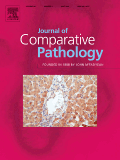
JOURNAL OF COMPARATIVE PATHOLOGY
Pioneering Research in Pathology and Forensic MedicineJOURNAL OF COMPARATIVE PATHOLOGY, published by Elsevier Science Ltd, stands as a significant publication within the fields of pathology and forensic medicine, as well as veterinary studies. With an ISSN of 0021-9975 and an E-ISSN of 1532-3129, this journal has been disseminating critical research since 1950, contributing to the advancement of knowledge through its focus on comparative pathology. The journal's reputable standing is underscored by its Q3 classification in Pathology and Forensic Medicine and Q2 in Veterinary (miscellaneous) for 2023, reflecting its vital role in shaping contemporary discourse in these domains. The Scopus ranks further solidify its presence, placing it at the 51st percentile in general veterinary sciences and the 32nd percentile in pathology—a testament to the quality and relevance of the contributions it publishes. Although it operates under a subscription model, the journal remains accessible to researchers and practitioners who aim to deepen their understanding of pathological phenomena across species, enhance diagnostic accuracy, and improve clinical practices. With a steadfast commitment to rigorous peer review and a global readership, the JOURNAL OF COMPARATIVE PATHOLOGY is an essential resource for those engaged in research and professional practice, fostering collaborations and innovations that bridge complementary areas of study.
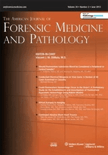
AMERICAN JOURNAL OF FORENSIC MEDICINE AND PATHOLOGY
Unveiling Truths Through Forensic InnovationThe American Journal of Forensic Medicine and Pathology is a pivotal publication within the field of forensic science and pathology, dedicated to disseminating influential research and advancements in the evaluation of death and injury in legal contexts. Published by Lippincott Williams & Wilkins, this journal, which has been in circulation since 1980, serves as a vital resource for professionals, researchers, and students focused on intersecting disciplines such as medicine and forensic investigations. While it holds a respectable Q3 ranking in both the Medicine (Miscellaneous) and Pathology and Forensic Medicine categories as of 2023, the journal's impact is underscored by its contributions to the ongoing dialogue on forensic practices and methodologies. The American Journal of Forensic Medicine and Pathology provides a platform for innovative papers that shape the future of forensic science, also offering insights through case studies, reviews, and research articles that cater to its diverse readership. With an ISSN of 0195-7910 and E-ISSN 1533-404X, the journal continues to support the scholarly community in advancing knowledge within this critical field.

JOURNAL OF FORENSIC PSYCHIATRY & PSYCHOLOGY
Empowering Research at the Crossroads of Forensic ScienceJOURNAL OF FORENSIC PSYCHIATRY & PSYCHOLOGY, published by Routledge Journals, Taylor & Francis Ltd, is a pivotal platform for advancing knowledge at the intersection of psychology, psychiatry, and the legal system. With an ISSN of 1478-9949, this esteemed journal has been providing a critical forum since its inception in 2003, continuing through to 2024, to foster interdisciplinary dialogue among researchers, clinicians, and legal professionals. The journal holds a Q3 category ranking in both Clinical Psychology and Psychiatry and Mental Health, reflecting its important contributions to the field. With a focus on empirical research, theoretical perspectives, and case studies, it aims to enhance the understanding of forensic issues while ensuring ethical considerations in psychological assessments and interventions. Although it currently does not provide open access, the journal's rigorous peer-review process assures high-quality publications. Researchers looking to stay at the forefront of forensic psychology will find this publication indispensable for their scholarly work and practical applications.
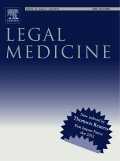
Legal Medicine
Empowering professionals in legal medicine.Legal Medicine, ISSN 1344-6223, published by ELSEVIER IRELAND LTD, stands as a pivotal academic journal within the realms of forensic medicine and legal ethics. Operating from the Netherlands, this journal has established a strong reputation among researchers and practitioners since its inception in 1999, with the goal of advancing knowledge in the intersection of legal and medical disciplines. With a commendable Q2 categorization in both Issues, Ethics and Legal Aspects and Pathology and Forensic Medicine, it ranks among the noteworthy publications in these fields, placing it in the 51st percentile for Pathology and Forensic Medicine and 51st for Nursing-related ethical issues. The journal not only serves as a repository for innovative research and practical case studies but also emphasizes the importance of ethical considerations in medical legal scenarios. Although it does not offer Open Access options, it remains a crucial resource for professionals, researchers, and students seeking to stay informed about the latest developments that shape legal medicine. Access to its contents promises to enhance understanding and inspire advancements in both forensic science and the ethical frameworks surrounding them.
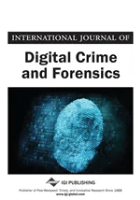
International Journal of Digital Crime and Forensics
Empowering Knowledge in the Battle Against Digital ThreatsWelcome to the International Journal of Digital Crime and Forensics, an esteemed publication spearheaded by IGI Global, dedicated to advancing research and disseminating knowledge in the crucial fields of cybersecurity, digital crime, and forensic analysis. With its inaugural issue published in 2009, this journal has continually focused on providing a platform for innovative research, insightful case studies, and practical solutions aimed at addressing contemporary challenges in digital criminal activity and forensic investigation. While currently classified in the Q4 Category for software within the Computer Science domain according to 2023 rankings, and positioned in the 32nd percentile of Scopus Ranks, the journal remains committed to enhancing its impact and visibility in the scholarly community. By maintaining a rigorous peer-review process, the journal ensures high-quality contributions that equip researchers, professionals, and students with essential tools and knowledge. Although the journal operates under a subscription model, it plays an integral role in shaping the discourse surrounding digital crime and forensics, making it an indispensable resource for anyone serious about understanding and combating digital threats.

Journal of Forensic and Legal Medicine
Advancing the Intersection of Law and Medicine.The Journal of Forensic and Legal Medicine, published by Elsevier, stands at the forefront of interdisciplinary research in the overlapping domains of law, medicine, and forensic science. With an ISSN of 1752-928X and an E-ISSN of 1532-2009, this esteemed journal covers pivotal advancements in the field, spanning from 2007 to 2024. The journal enjoys a distinguished reputation, evidenced by its Q1 ranking in Law and its notable positions in the Scopus Ranks with an 82nd percentile in Social Sciences—Law. As a crucial resource for researchers, practitioners, and students alike, the journal focuses on the vital role of forensic evidence in legal contexts, ensuring the dissemination of high-quality, peer-reviewed articles that contribute to both academic and practical applications in the realm of forensic and legal medicine. Its accessibility to a broad audience, despite not being open access, bolsters its importance in advancing forensic science, policy-making, and medical jurisprudence worldwide.
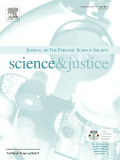
SCIENCE & JUSTICE
Pioneering Research for a Just and Equitable Society.Science & Justice is a leading international journal published by Elsevier Science Ltd, dedicated to the interdisciplinary examination of the intersection of justice and science, especially within the realms of forensic science and pathology. Established in 1995, this reputable journal has garnered a commendable Q2 rank in the category of Pathology and Forensic Medicine, reflecting its significant contributions to advancing knowledge in these critical fields. With an ISSN of 1355-0306 and an E-ISSN of 1876-4452, the journal is indexed in Scopus, positioning it in the top 68th percentile among its peers. The objectives of Science & Justice include promoting research that bridges scientific methodologies with justice-related applications, making it an invaluable resource for researchers, professionals, and students alike. As the journal continues to evolve, it aims to interface scientific innovations with forensic practices, thereby enhancing the integrity of justice processes globally. Despite not offering Open Access options, it remains a pivotal reference point within the academic community focused on forensic science methodologies and their legal implications.
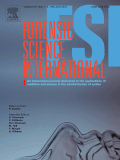
Forensic Science International
Pioneering Discoveries in Forensic Medicine and LawForensic Science International is a premier journal published by Elsevier Ireland Ltd, dedicated to advancing the field of forensic science through interdisciplinary research and scholarship. Since its inception in 1978, this esteemed journal has provided a platform for vital research, receiving recognition in the Q1 category for both Law and Pathology and Forensic Medicine as of 2023, underscoring its significant impact in these domains. It currently ranks 54th out of 1025 journals in Social Sciences - Law and 51st out of 208 in Medicine - Pathology and Forensic Medicine, placing it in the top echelons of academic journals according to Scopus metrics. Forensic Science International transitioned to Open Access in 2019, ensuring that critical findings are widely available to the global research community and enhancing collaboration among forensic professionals. With a forward-looking scope that evolves to meet the challenges and innovations of forensic science, this journal remains a pivotal resource for researchers, practitioners, and students who are committed to the continued advancement of forensic science and its applications in legal contexts.

Forensic Imaging
Pioneering the field of forensic imaging for a safer tomorrow.Forensic Imaging is a premier international journal dedicated to advancing the field of forensic science through the analysis and implementation of imaging techniques. Published by ELSEVIER, this open access journal provides a platform for researchers, professionals, and students to disseminate innovative studies that bridge the disciplines of Pathology, Forensic Medicine, and Radiology. Since its inception in 2020, it has gained recognition and holds a respectable Q3 ranking in its categories for both Pathology and Forensic Medicine and Radiology, Nuclear Medicine and Imaging, reflecting its commitment to high-quality, impactful research. The journal's practical focus on imaging methodologies offers valuable insights into forensic investigations and enhances professional practices, making it an essential read for those involved in forensic research and application. Available in both print and online formats, Forensic Imaging serves as a vital resource for fostering breakthroughs in the analysis of forensic evidence.

Proceedings of the Institution of Civil Engineers-Forensic Engineering
Catalyzing Discussions for Safer InfrastructureProceedings of the Institution of Civil Engineers - Forensic Engineering is a pivotal journal in the field of forensic engineering, published by Emerald Group Publishing Ltd, a renowned name in academic publishing. With a focus on investigating and understanding the failures of civil engineering structures, this journal provides a critical platform for the dissemination of research and case studies aimed at enhancing safety, risk, and reliability in engineering practices. It holds an important place in the Q4 quartile of the Safety, Risk, Reliability and Quality category as of 2023, and currently ranks #123 out of 207 in its field according to Scopus, reflecting its emerging influence despite its relatively recent establishment in 2011. Researchers, practitioners, and students alike will find valuable insights through non-open access articles that contribute to a deeper understanding of forensic analysis in civil engineering contexts. The journal's mission is to promote discussions that lead to significant advancements in civil engineering safety and reliability, ultimately informing best practices and policy-making in the profession.